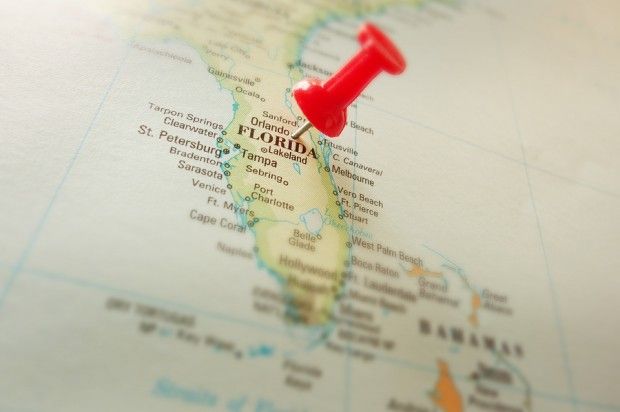Continuing its efforts to reduce assessment risk, the Board of Governors of Citizens Property Insurance Corporation on Thursday approved a $3.1 billion risk transfer program for the 2014 hurricane season.
The program capitalizes on favorable market conditions to dramatically increase reinsurance coverage at a lower price, and includes the largest single catastrophe bond issue in history at $1.5 billion of the total.
Following weeks of negotiations and strong global demand, Citizens has raised its reinsurance protection by nearly 70 percent from previous levels while still anticipating growth in 2014 surplus of roughly $600 million, the not-for-profit insurer said in a statement. “This is incredible progress and the result of a lot of hard work,” said Chris Gardner, Chairman of Citizens Board of Governors. “Essentially, in the last three years, we have reduced the risk to our taxpayers of an assessment by more than $9 billion, or approximately 80 percent.”
The two-pronged risk transfer package includes a total capital markets risk transfer of $1.75 billion in catastrophe bonds issued by Everglades Re Ltd., a Bermuda-based company. The 2014 issuance of $1.5 billion is the third transaction with Everglades Re in the past three years, including an outstanding $250 million catastrophe bond issued in 2013.
Unlike previous capital market risk transfers, which were structured for single events only, the 2014 transaction provides coverage on an annual aggregate basis over the next three years, protecting the state-created insurer of last resort from multiple smaller storms.
Citizens has also bolstered its participation in the traditional reinsurance market with the expected purchase of approximately $1.3 billion in coverage for the 2014 hurricane season, including approximately $750 million that covers aggregate losses in the event of multiple storms.
The risk transfer package further reduces the burden on all Florida policyholders who may be assessed if Citizens exhausts its ability to pay claims. For 2014, assessments in the event of a 100-year storm would be approximately $2.4 billion, a nearly 80 percent decrease from the $11.6 billion assessment risk only three years ago.
The reinsurance package will cost Citizens approximately $300 million in 2014, roughly equal to the amount spent in 2013 for $1.85 billion in reinsurance coverage.
The dramatic cost savings is brought on by sustained global interest in catastrophe bonds and Citizens’ continued efforts in these markets. The Everglades 2014 catastrophe bond was priced at a rate on line of 7.5 percent, less than half the 17.75 percent charged for the first Everglades bonds issued in 2012.
Chief Financial Officer Jennifer Montero led a negotiations team with the support of Citizens Chief Risk Officer John Rollins.
“We’ve been able to capitalize on favorable market conditions across the board to maximize our 2014 risk transfer program,” Montero said in a statement. “Such market conditions have allowed us to exceed our initial expectations in regard to the level of reinsurance coverage at the most efficient pricing.”
Following the transactions, Citizens will enter the 2014 hurricane season with the ability to pay all claims in the event of approximately a 70-year storm without the need to assess policyholders.
In 2002, the Florida Legislature created Citizens, whose public purpose is to provide insurance to, and serve the needs of, property owners who cannot find coverage in the private insurance market.
Source: Citizens Property Insurance Corporation





















 Focus on Ski Guides After Deadly California Avalanche Could Lead to Criminal Charges, Civil Suits
Focus on Ski Guides After Deadly California Avalanche Could Lead to Criminal Charges, Civil Suits  Viewpoint: Runoff Specialists Have Evolved Into Key Strategic Partners for Insurers
Viewpoint: Runoff Specialists Have Evolved Into Key Strategic Partners for Insurers  Large Scale Cargo Ring Busted in LA, $5M Recovered
Large Scale Cargo Ring Busted in LA, $5M Recovered  Premium Slowdown, Inflation Factors to Lead to Higher P/C Combined Ratio: AM Best
Premium Slowdown, Inflation Factors to Lead to Higher P/C Combined Ratio: AM Best 
